Search Results
Showing results 1 to 18 of 18
Mercury in the Environment
Source Institutions
In this environmental science lesson, learners will examine the dangers of mercury and how humans contribute to growing mercury emissions on Earth.
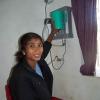
Straining Out the Dirt
Learners take on the role of environmental engineers as they design water filters.
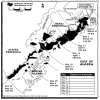
Fragile Waters
Source Institutions
In this activity (on pages 18-29) learners explore the impact of the March 24, 1989 oil spill in Alaska caused by the Exxon Valdez tanker.

Toxic Popcorn Design Challenge
Source Institutions
In this activity, learners explore the engineering design process (EDP)—the process engineers use to solve design challenges.
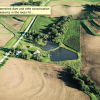
Positive Planning Adds Up
Source Institutions
In this drawing/mapping activity, learners design plots of land while incorporating positive strategies for improving water quality.
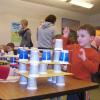
Exploring Structures
Source Institutions
This event guide features three related explorations in which learners investigate the following science concepts: how you design and build a structure helps determine how strong it will be; different
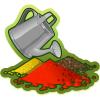
What Trickles Down?
Source Institutions
Learners design their own experiment to explore the permeability of different materials such as soil, sand, gravel, and marbles.
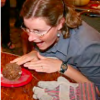
Cook Up a Comet
Source Institutions
In this activity (on page 5 of PDF), learners use dry ice and household materials to make scientifically accurate models of comets.
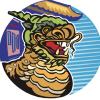
Draggin' Boats
Source Institutions
Learners design, build, and test models of "dragon boats" made from up to three milk cartons.

Wind Tunnel
Source Institutions
Scientists use enormous wind tunnels to test the design of planes, helicopters, even the Space Shuttle.
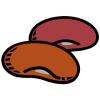
Not Just A Bag Of Beans
Source Institutions
In this activity, learners count and measure kidney beans to explore natural selection and variation. Learners measure the length of 50-100 beans.
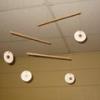
Rotational Equilibrium
Source Institutions
In this activity, learners explore the concept of rotational equilibrium. Learners work in teams to estimate and determine the force within a mobile design.
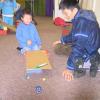
Exploring Ramps
Source Institutions
This guide features three related ramp explorations in which learners investigate the following science concepts: when placed on a ramp, some objects roll, others slide, and others stay put; the shape

Can Nutrients in Water Cause Harm?
Source Institutions
In this water pollution activity, learners create pond water cultures and investigate the effects of adding chemicals or natural nutrients.

Water Treatment
Source Institutions
Water treatment on a large scale enables the supply of clean drinking water to communities.

Clipper Creations
Source Institutions
In this activity, learners create a working model of a nail clipper. This activity helps learners learn the basic principles of simple machines, engineering design and model building.
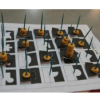
Fruity-Glows: Pictures of Health on a Microarray Canvas
Source Institutions
In this activity (page 12), learners apply the concepts of pixilation and pointillism to the world of biomedical science.
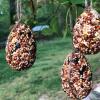
For the Birds
Source Institutions
In this activity, learners will explore nature by creating food for birds. Learners will develop fine motor skills and engage in nature observation through this activity.
